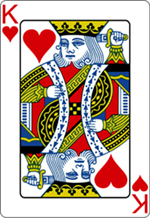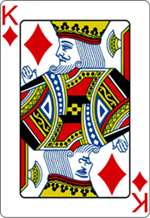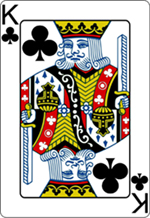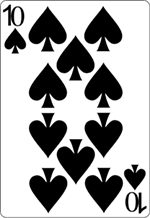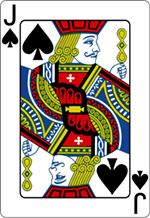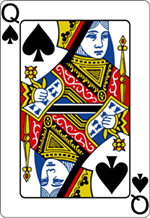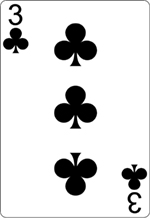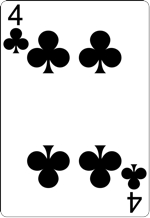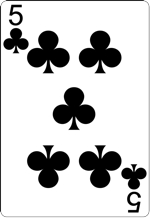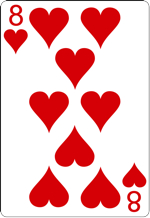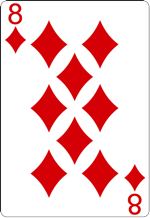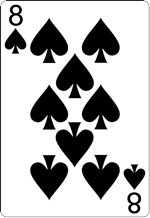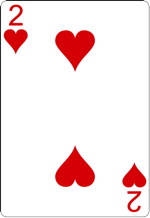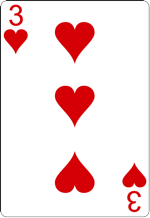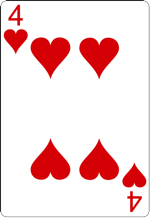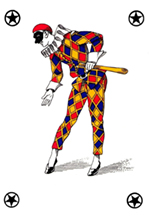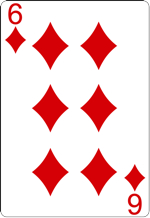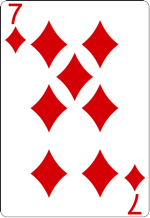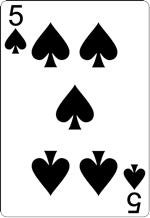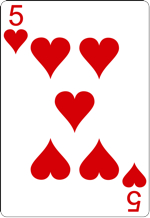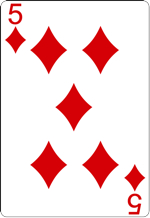The Game of 30
I have not seen this game described anywhere else on the web, though you would expect someone to have done it.
For many years, since the European summer of 2014, Maria and I have been playing a German card game, taught to us by our niece and nephew in Germany, lovely people, before we started on a wonderful cycling trip in Europe. We call it "The Game of Thirty". It only works for two players.
I have pretty much worked out winning and losing strategies. It is a game of chance at least in some respects, but it is possible to make right and wrong decisions. We played it at our daily afternoon tent sites while cycling from Amsterdam to Copenhagen, and from Köln to the Black Forest, and it is part of our life now. We play it every night we can at 5 pm, over sliced apple and cheese, and then cheese and crackers and potato crisps, drinking wine, and discussing world events.
We play ten hands for one evening, which takes about an hour. The idea is to get rid of all of your cards before your partner in the one hand. Then the card value of every card left in the loser's hand is added to their score.
As in golf, the winner is the player with the lowest score, in our case after ten hands have been played.
Before I instituted a series of stop-loss decisions, and was still working on emotions rather than logic and probabilities (e.g. 'if I just picked up a king of hearts from the deck I would be in the clear') I once had twelve losses, of ten games each, in a row! That never happens now.
The Rules
The pack is a normal deck of 52 cards, but with two jokers added. The cards ace, king, queen, jack, ten and the joker are each worth just ten points, we call these court cards. The other cards are worth whatever is on their face.
Jokers are wild, and can replace any other card, but even so a joker is always worth ten points.
The images of cards on this page have been taken from Byron Knoll: http://code.google.com/p/vector-playing-cards/
opengameart.org/content/playing-cards-vector-png
Permission: CC0, public domain. The image of the joker card is also public domain.
Starting with Player 1 as the dealer, deal one card at a time to each player in turn, until Player 1 has ten cards, and Player 2 has 11 cards.
Player 2 has the first opportunity to put down cards in front of them. These cards must be at least three in number for each group of cards put down, and the total in either one group of three or more, or in two or more groups of three or more, must be at least 30.
Then Player 2 puts down one card, face up, beside the rest of the deck.
So if Player 2 has three kings, for example:
or if Player 2 has ten jack queen of the same suit:
They can put that group down, and then discard one card. Or if they have a 'run' of 3, 4, 5 of clubs and three 8s, that adds up to 36, which is thirty or more, so that play is valid.
(Note that any run must be of cards of the same suit.)
Or Player 2 might have 2, 3, 4 of hearts, a joker, 6 and 7 of diamonds, and four fives, a total of 9 + 23 + 20 = 52, so that is also a valid play.
In fact in this example, Player 2 has laid down ten cards, then discards their remaining card (whatever that may be), and thus has no cards left, and they have won that hand.
We call that a 'kamikaze' if one player puts down all their cards before the other player has put down any group of three or more amounting to thirty or more !
However this is unusual, and after player 2 has done their best, it is then the dealer, Player 1's turn.
They either pick up the discard from Player 2, or pick up the top card from the deck on the table, and add it to their hand. If they can make a group of thirty or more, they can lay that down (or not, strategy comes into this) and make their own discard.
Thus the game continues until ten hands have been played. The winner is the player with the smallest score. If the scores are the same, then each gains one point on the table of winners and losers, to be continued when the players meet again.
An important point is that once you have put out a group of three or more adding to thirty, you are then able to add to the cards already on the table, either ones that you have put out, or that the other player has put out.
If you have a card that can by placed where there is a joker, for example if the following has been put down:
And you have
then you can put down the five of diamonds, pick up the joker, and add it to your hand, which may be very useful. At the very least, and especially towards the end of the hand, you can put the joker down anywhere on the tail of another run of cards if you cannot use it to make another group of three.
Even if all groups are full up (for example there are three groups of four cards of the same value) our house rules are that the joker can be put on any group of four making five sixes for example - four sixes and the joker, or indeed on any other run, even if the run is complete, or cannot be completed because one or more of the cards are used in another group of three.
The ace may be put down on a two of the same suit, or a king of the same suit, if it adds to that run of cards.
Strategy
My basic strategy is to lose each hand by the smallest amount I can manage!The reason is that there are ten hands in our version of the game, so it may be that (in another hand) you will 'get out' while the other player is still holding a number of cards, perhaps of high value. This puts you ahead in the running count.
The problem is that to get your count down, you have to have put out at least three or more cards totalling thirty or more. Until you have done that, you cannot add to the other player's groups of cards, even to pick up a joker.
If you do discard the 'joker' replacement already on the table, our house rules are that if the other player realises that they will tell you that the joker for that card is already out, and you can discard another card.
Occasionally in desperation to get your count down, you can in fact accept that warning, but still discard the card, the other player can then pick up your discard, and put it down in the joker's place while adding the joker to their hand.
This means that when all seems hopeless, at least you have brought your total count down by the value of that card. Similarly, house rules are that you can even discard the joker, which may be picked up by the other player and used as they wish.
